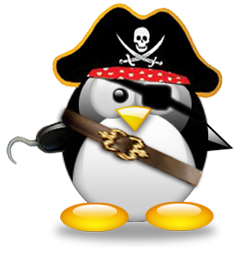07.30

 I just read an article the other day about an interesting conflict between those that speak out for pro-piracy and those fighting for free (as in freedom) software. In Sweden, the political party that is aptly named the “Pirate Party” is lobbying for new copyright laws, specifically that any copyrighted material will become public domain 5 years after first being published, among other things. The free software advocates, however, depend on the current indefinite copyright law in order to keep their licenses, such as the GPL, working to protect free software from being utilized in proprietary software. Richard Stallman, founder of the Free Software Foundation, has pointed out that, if this new copyright law was introduced, proprietary software would only have the binaries released to the public domain and not the source code. Not only that, but these software providers could put time bombs in the software making it cease to function after the copyright has expired. Add to that the fact that after 5 years, any open source technology could be utilized by these proprietary software companies without passing on the freedoms to the user, this new law could actually end up doing more harm than good.
I just read an article the other day about an interesting conflict between those that speak out for pro-piracy and those fighting for free (as in freedom) software. In Sweden, the political party that is aptly named the “Pirate Party” is lobbying for new copyright laws, specifically that any copyrighted material will become public domain 5 years after first being published, among other things. The free software advocates, however, depend on the current indefinite copyright law in order to keep their licenses, such as the GPL, working to protect free software from being utilized in proprietary software. Richard Stallman, founder of the Free Software Foundation, has pointed out that, if this new copyright law was introduced, proprietary software would only have the binaries released to the public domain and not the source code. Not only that, but these software providers could put time bombs in the software making it cease to function after the copyright has expired. Add to that the fact that after 5 years, any open source technology could be utilized by these proprietary software companies without passing on the freedoms to the user, this new law could actually end up doing more harm than good.
Stallman proposes a few solutions to this dilemma. The first option would be to allow an extended copyright for free software, but the Pirate Party accurately argues that this opens the doors to other kinds of exceptions, which could quite quickly defeat the whole expiry proposal. The second option Stallman suggests, which in a perfect world I think would be the best, is that proprietary source code would have to be released to the public domain upon expiry as well as the binaries. I suspect that enforcing this kind of ruling would be quite difficult, however, especially if you consider software providers that have faded away within the copyright period of their software and simply aren’t around to release source code. The final solution, which is likely the most feasible, is to have a variable copyright expiration where the most open/free content would be allowed to retain its copyright the longest. This way they do not have to allow for any special exceptions for different groups. The trick here is to find an accurate way of determining where any content fits on this continuum. Fully open and fully locked down software would be easy to pick out, but the gray area would be a tough call. Even amongst the open source community, licenses such as BSD might not be considered as open as ones such as the GPL as the BSD license allows commercial use, but one could also argue the opposite as the GPL locks out users who want to use the software for commercial use.
Lately I have been quite a big fan of Free and Open Source Software (FOSS). In fact, this blog runs purely on FOSS. However, not too long ago I was an advocate for digital piracy and anti-copyright thinking (and I am still not fond of copyright or “intellectual property”). It is interesting how two groups who have quite a number of common sentiments towards copyright law and “the man” can have drastically different demands for the industry as a whole. The fact that a small thing such as copyright expiry which seems beneficial to everyone can end up hurting a a group that is so similar in mindset is quite eye opening. I still fully agree with the Pirate Party that something needs to be done about copyright laws, but if that comes at the expense of FOSS, something needs reconsidering.